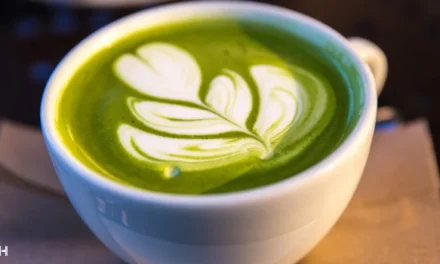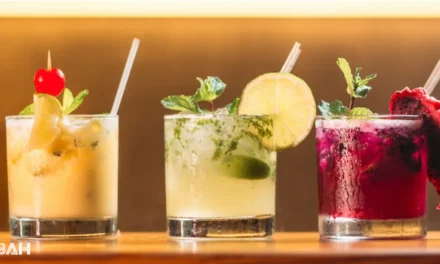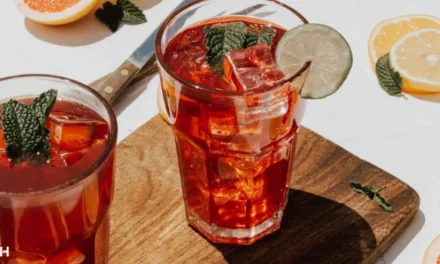Introduction
Alcohol is a complex issue in Islamic jurisprudence, with extensive debate among scholars about whether it is permitted (halal) or prohibited (haram). This article will explore the evidence and arguments on both sides.
Some key questions about alcohol in Islam include:
- Is only grape wine prohibited, or does “khamr” refer to all intoxicating drinks?
- Are there exceptions for small amounts of alcohol, such as in cooking?
- How do the Quran and hadith address intoxication and alcohol consumption?
“They ask you about wine and gambling. Say, ‘In them is great sin and [yet, some] benefit for people. But their sin is greater than their benefit.'” (Quran 2:219)
Here is a brief overview of the positions in this debate:
| Viewpoint | Description |
|---|---|
| Completely forbidden | All alcohol is prohibited, no matter the source or amount |
| Only grape wine prohibited | “Khamr” refers specifically to wine from grapes |
| Permitted in small amounts | Trace amounts in cooking or medicinal uses allowed |
This article will analyze evidence from Islamic scriptures and scholarly opinions on both sides of the alcohol debate. The conclusion will summarize the strongest arguments and offer perspective on this complex issue.
Background on Alcohol in Islam
Alcoholic beverages have existed in the Arab world since pre-Islamic times. However, the Quran and teachings of Prophet Muhammad transformed the relationship between alcohol and Muslim societies.
Some key Quranic verses and hadiths related to alcohol haram include:
-
“O you who have believed, indeed, intoxicants, gambling, [sacrificing on] stone alters [to other than Allah ], and divining arrows are but defilement from the work of Satan, so avoid it that you may be successful.” (Quran 5:90)
-
“Every intoxicant is unlawful. Whoever drinks wine in this world and dies while he is addicted to it, not having repented, will not be given a drink in the Hereafter.” (Hadith from Muslim)
-
“If a large amount of anything causes intoxication, a small amount of it is prohibited.” (Hadith from Abu Dawud)
There are also strict punishments prescribed in the hadith for drunkenness and alcohol drinkers:
- Flogging with palm branches or shoes
- Making the drunkard vomit by putting fingers down his throat
However, scholarly opinions have differed on what exactly is prohibited:
| Viewpoint | Description |
|---|---|
| All alcoholic drinks | Any beverage that causes intoxication |
| Only khamr (wine from grapes) | Specific prohibition only on wine, not beer, liquor, etc |
| Only in intoxicating amounts | Small amounts that do not lead to drunkenness may be permitted |
This scriptural background underlies the debate around whether alcohol can ever be considered halal.
Arguments that Alcohol is Haram
There are several strong arguments that alcohol is completely prohibited (haram) in Islam:
-
The Quran and hadith explicitly forbid intoxicants
-
The word “khamr” has been interpreted as any substance that intoxicates, not just wine
-
Clear verses prohibit not just drinking but also dealing in alcohol
-
“Intoxicants, gambling, idolatry, and divination are abominations devised by Satan. Avoid them, so you may prosper.” (Quran 5:90)
-
Alcohol is an addictive intoxicant
-
It clouds judgement and mental clarity
-
Can lead to inappropriate behavior and social problems
-
-
Consensus of Islamic jurists
-
Majority opinion over the centuries was that alcohol is haram
-
Only a minority of scholars disagreed that a ban on alcohol exists
-
-
Principle of sadd al-dharia – blocking means to evil
- Even if alcohol is not explicitly banned, its dangers warrant restrictions
Given these strong scriptural, legal, and ethical arguments, many Muslim scholars firmly believe alcohol is haram without exception.
Arguments that Alcohol is Halal
Despite the predominant view that alcohol is prohibited in Islam, some minority scholarly opinions and evidence suggest certain types or contexts where alcohol may be permitted (halal):
-
Only grape wine prohibited
-
The Arabic word “khamr” refers specifically to wine made from grapes
-
Beer, liquor, and other drinks are made from different sources
-
“They ask you about wine and gambling. Say, ‘In them is great sin and benefit for people. But their sin is greater than their benefit.'” (Quran 2:219)
- This verse only addresses wine, not all alcohol
-
No prohibition on small amounts
-
Traces of alcohol used in cooking or medicine may be permitted
-
Hadith prohibits amounts that lead to intoxication, not any minor exposure
-
-
Minority juristic opinions
-
Not all classical schools prohibited all alcohol entirely
-
Context and intention matters according to some opinions
-
-
Food additive and medicinal uses
-
Alcohol’s impacts and risks differ across uses
-
Applied judiciously, it may provide benefit without harm
-
While the scriptural evidence against alcohol is strong, there are minority voices arguing for a more nuanced interpretation. This remains an area of scholarly debate.
Issues Around Cooking with Alcohol
One especially contentious issue is whether alcohol used in cooking is permissible. Some key perspectives:
-
Alcohol evaporates during cooking
-
Traces left are minimal and do not cause intoxication
-
The prohibition is specifically on intoxicating amounts
-
“They will question you about wine and gambling. Say, ‘In them is great sin and benefit for people. But their sin is greater than their benefit.'” (Quran 2:219)
- This verse implies impermissible amounts of alcohol cause intoxication
-
Total prohibition view
-
Any consumption of alcohol, even traces, violates Islamic principles
-
Using alcohol in cooking normalizes alcohol use
-
-
Intent matters
-
Alcohol was not intentionally used as a drink
-
It was utilized for flavoring food, not intoxicating purposes
-
| Viewpoint | Description |
|---|---|
| Permissible | Alcohol traces in cooked food allowed |
| Impermissible | Any alcohol consumption prohibited |
| Depends on intent | Using alcohol specifically for intoxication banned |
This issue remains hotly debated, though the mainstream view is that all alcohol in food is forbidden.
Is Alcohol Halal: FAQ
Is alcohol halal?
Alcohol is haram in Islam, which means it is strictly prohibited. Muslims are forbidden from consuming alcohol in any form as it is considered an intoxicant and can lead to intoxication. The Quran and hadith clearly prohibit the consumption of alcohol.
What does Islam say about drinking alcohol?
Islam considers the consumption of alcoholic beverages as haram in Islam. It is considered a sin and goes against the teachings of the religion. Muslims are expected to follow the teachings of Allah and abstain from consuming alcohol.
Can Muslims use products that contain alcohol?
Although the consumption of alcohol is forbidden, the use of products that contain alcohol is a matter of debate among scholars. Some argue that if the alcohol content is negligible and not intended for intoxication, it is permissible to use such products, such as certain perfumes.
Is alcohol really haram?
Yes, alcohol is really haram in Islam. Its consumption is considered a major sin. The Quran mentions the harmful effects of alcohol and warns against its consumption. Muslims are commanded to abstain from consuming all forms of alcohol.
Is alcohol considered haram in Saudi Arabia?
In Saudi Arabia, a muslim-majority country, the consumption and sale of alcohol is strictly prohibited according to Islamic law. It is considered haram and the law enforces a complete ban on the sale and consumption of alcoholic beverages.
What did the Prophet Muhammad say about alcohol?
The Prophet Muhammad explicitly prohibited the consumption of alcohol. He advised his followers to stay away from anything that can lead to intoxication and emphasized the importance of maintaining a clear and sober mind.
Are there any exceptions to the prohibition on alcohol?
In general, alcohol is considered haram for Muslims, and there are no specific exceptions mentioned in the religious texts. However, some scholars argue that if alcohol is used for medicinal purposes and is prescribed by a qualified doctor, it may be allowed in small amounts.
Are there any halal alcoholic beverages?
No, there are no halal alcoholic beverages so stick to soft drinks.
Conclusion
The debate around alcohol in Islam has raged for centuries, with reasonable evidence and arguments on both sides:
-
Scriptural basis for prohibition
-
The Quran and hadith include apparent condemnations of alcohol
-
But counterarguments suggest these may refer only to wine or intoxicating amounts
-
-
Harms versus benefits
-
Alcohol has addictive properties and social risks
-
But some enjoy it responsibly, and it has some medical uses
-
-
Minority opinions
- While most scholars prohibited alcohol, some permitted it in certain contexts
-
Pragmatic approaches
-
Many Muslims avoid alcohol as a precaution
-
But may reluctantly accept small amounts in medicine, cooking, or cleaning
-
There is no firm consensus, but the mainstream Islamic opinion remains that alcohol is broadly prohibited. This is based on scriptural sources, legal precedent, and alcohol’s dangers. However, the debate continues on what exactly is prohibited and whether any flexibility exists.
“Do not approach prayer while intoxicated until you know what you are saying.” (Quran 4:43)
This verse sums up Islam’s cautionary stance – when in doubt, avoid alcohol entirely during acts of worship. Moderation and judiciousness are advisable in this gray area.





